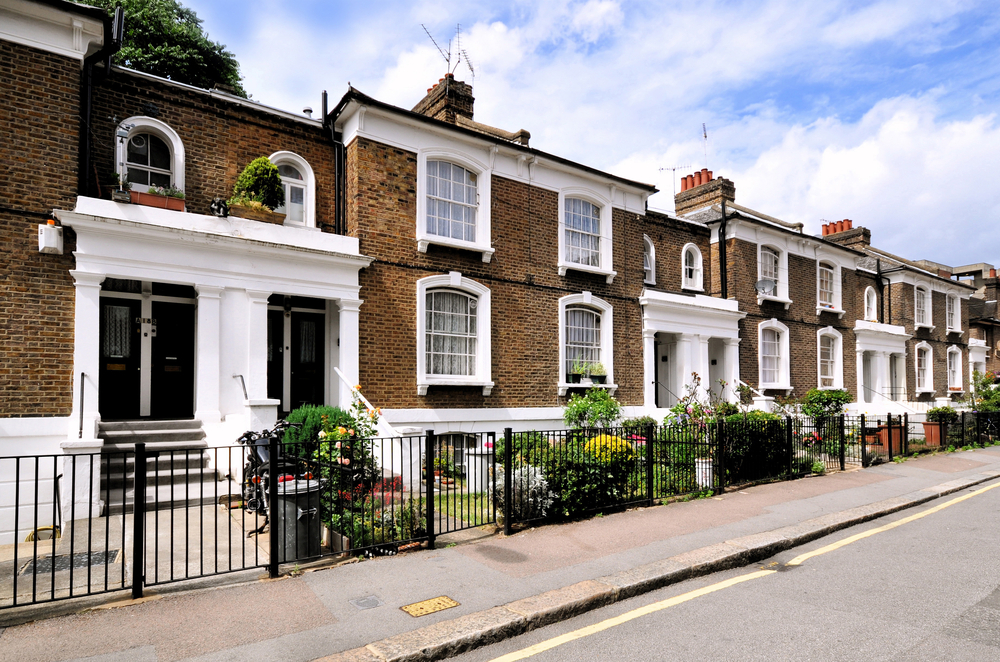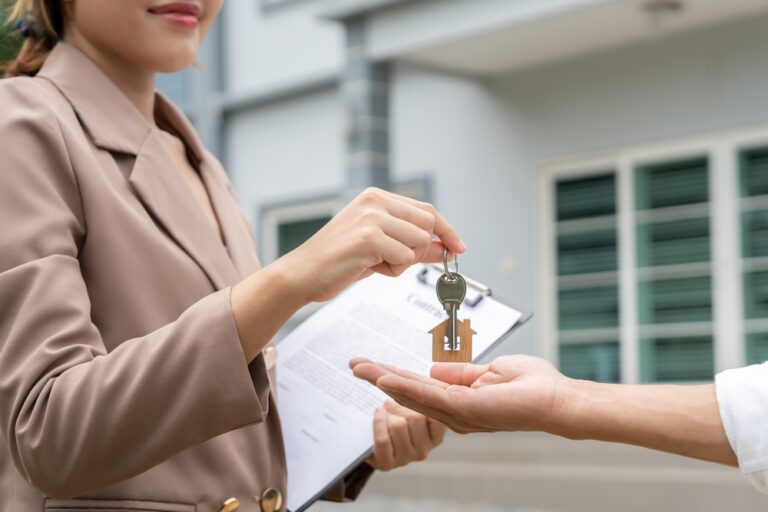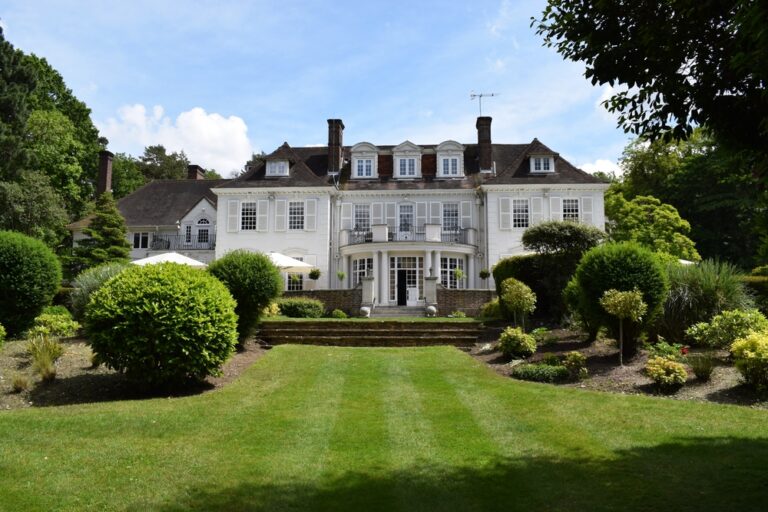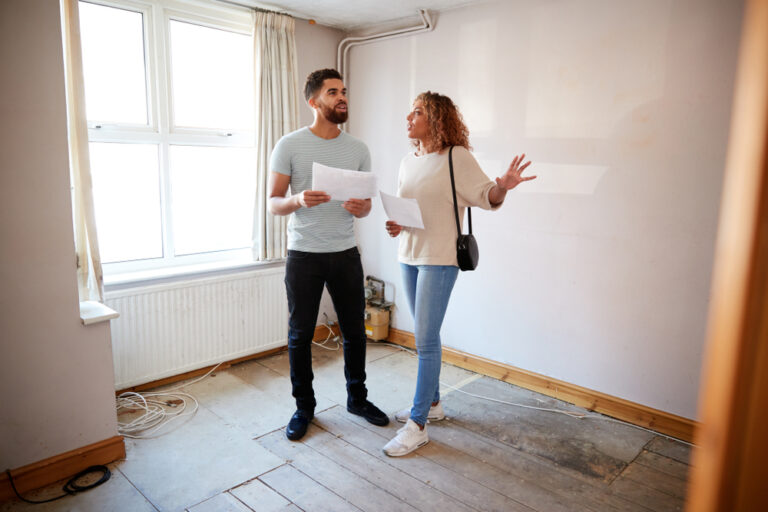Buying your first home in London and Kent can be a challenge. But all challenges are there to be overcome.
This guide will outline everything you need to know and do to get that first foot on the property ladder…
Buying your first home in London or Kent: What you’ll need to do
Preparation is key for any property purchase, but here, even more so.
Competition for great properties is high, and the amount of money involved to buy one can be even higher.
So, being ready to start your property journey is crucial, and while every purchase is different in some way, these are the steps you’ll need to take to get the keys for your first home.
1. Get your finances in order
How much you can borrow through a mortgage and how easy the mortgage process is will all depend on your financial situation.
So, before you start looking at properties, take a forensic look at your finances:
- How much debt do you have?
- Can you pay off your debts before buying?
- What is your credit history like?
- Do you have any County Court Judgments (CCJs) or have you been bankrupt?
- What’s your income, and could you earn more?
- How much deposit have you saved and how much more do you need?
- How much do you need to cover other costs like solicitor fees, mortgage fees and removals costs?
Looking at your finances in that kind of detail may mean you’re not ready to buy just yet.
But it will help you focus on clearing debts or saving a larger deposit, meaning when you’re ready, you’ll be able to hit the ground running.
2. Speak to lenders or a mortgage broker
If you’ve looked at your finances and you’re confident that now is the right time to buy, you should speak to mortgage lenders or a mortgage broker about what options are available to you.
Mortgage lenders will look at your financial situation in great detail to help them establish how much you’re able to borrow.
By speaking to a broker, you’ll be able to see what interest rates are available to you through various lenders, giving you potentially more options for your mortgage.
If you’re in a good position to borrow, look to get a mortgage agreement in principle (AIP).
This lets you know how much you can potentially borrow, subject to more stringent checks and assessments, but it will show sellers that you’re in a good position to move quickly.
3. Instruct your solicitor early
As well as having a mortgage AIP in place, instructing a solicitor early will also show sellers that you’re serious about buying.
In a London property market where competition is high, this will put you in a good position compared with other buyers.
4. Speak to your local agent
You should have an idea where in London you’re looking to buy, so once you’ve narrowed down your search area, contact your local Ellis & Co agent.
We know London like the back of our hand and will be able to give you a thorough assessment of the current market and point you towards some great homes.
5. Start your search
When searching for a property, keep an open mind.
The south east is full of great period homes, amazing modern apartments and stunning new-build properties, so being open to all of those types of property will mean many, many more options for you.
Don’t be afraid to push your search area a little, too. The further you move out from the centre of the city, the more affordable options you’re likely to have.
So, while your commute to work might take you 10 or 15 minutes longer each day, you could save a substantial amount on your purchase price.
That said, your first property has to work for you, so make sure you’re absolutely clear on your must-haves as well as things you’re prepared to compromise on.
6. Make an offer
Once you’ve found a property you like, it’s time to make an offer.
Try to find out as much as you can from the agent about the seller’s situation:
- Have they found their next home?
- Are they keen to move quickly?
- How much interest has the property had?
- How long has it been on the market?
All of this information can help you when deciding where to pitch your offer.
If the seller has found their next home and wants to move quickly, they might be open to a below asking price offer.
If the property has attracted lots of interest and has only been on the market a short time, you might have to make your offer higher to secure it.
Whatever the situation, don’t overstretch yourself and only offer what you’re prepared to pay.
7. Finalise your mortgage
Once you’ve had an offer accepted, you’ll need to finalise your mortgage application.
Make sure your finances are in good shape and you have three months of healthy bank statements and payslips to provide to your lender, as well as any other information they require.
8. Be efficient
Property transactions can be slow, but you can play your part in speeding things up.
You’ll need to find a whole host of documentation that your solicitor and lender will require to perform the legal and financial work on your purchase.
This might include:
- Your P60
- Three or six months of payslips
- Three or six months of bank statements
- Passport or driving licence for ID checks
- A utility bill for proof of address
- An SA302 form if you’re self-employed
Get these documents up together early, so when your offer is in and has been accepted, you can send everything off to the parties who need it.
Help schemes for first-time buyers in London
There are two major schemes available to help first-time buyers onto the property ladder in London and Kent.
1. Help to Buy
The Help to Buy scheme has been running nationwide for a number of years and has already helped thousands of first-timers buy a home.
Help to Buy sees you borrow an equity loan worth up to 40% of a new-build London property’s purchase price, with you providing a 5% deposit and a mortgage funding the rest.
There’s far more to Help to Buy than that, though, so take a look at our guide, which can help you decide if it’s right for you.
2. Shared Ownership
Under the Shared Ownership scheme, you buy a percentage of a property and pay rent on the rest, which is owned by a housing association.
Shared Ownership can be a great option for first-time buyers, but it’s important you consider whether or not it’s right for you and your circumstances.
Take a look at our guide to Shared Ownership, which can help.







